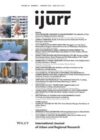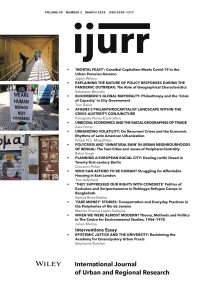The contemporary urban system in the United States is characterized by the historic dominance of a few metropolitan regions often termed ‘superstar cities’, while the national political environment is increasingly polarized along urban–rural lines. Furthermore, both inter-urban and intra-urban difference in the US are deeply racialized, a fact that suffuses both critical and reactionary discourses which seek to explain and address differences in the conditions of cities and neighborhoods. We contend the dominant urban economic paradigm in the US concerned with the level of the urban system seems primed to produce recommendations that exacerbate, rather than ameliorate, these issues. Undertaking a critical discourse analysis of national urban economic policy recommendations, with a particular focus on the work of prominent economist Ed Glaeser, we argue economists abuse the spatial equilibrium models dominant within this field in service of constructing recommendations for urban triage that betray an urbicidal logic. Facially dispassionate and racially neutral recommendations that conclude the state should not invest in improving life conditions for residents of declining urban regions, other than to facilitate their outmigration, both rely on and reproduce latent racialized and stigmatizing discourses about the viability of subordinated and racialized urban places.
Details
Written by:
Alexander Ferrer, Richard Kirk
Digital Object Identifier (DOI)
https://doi.org/10.1111/1468-2427.13301
About DOI

